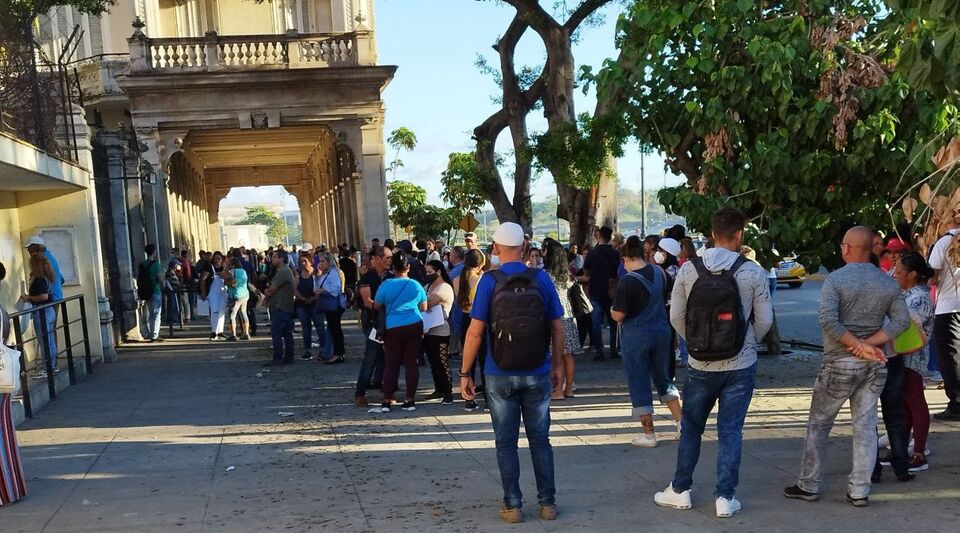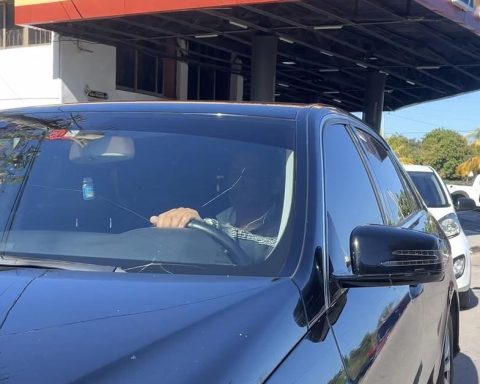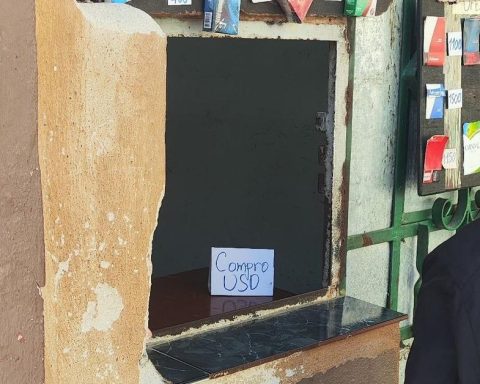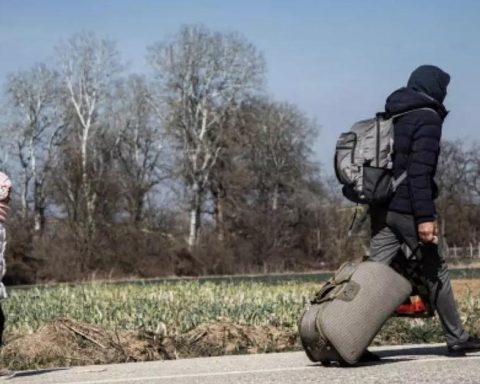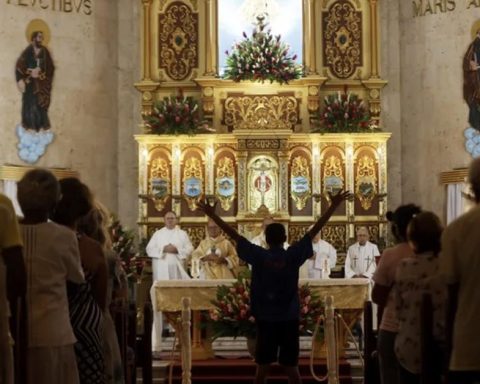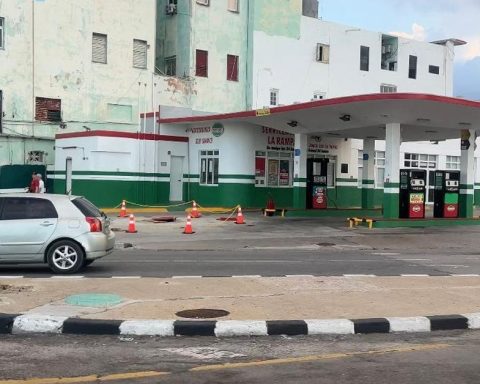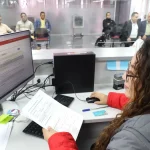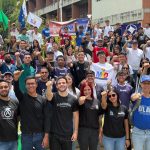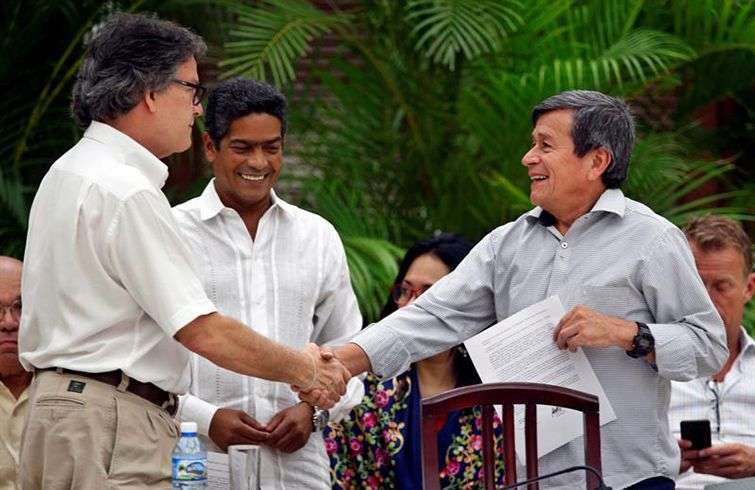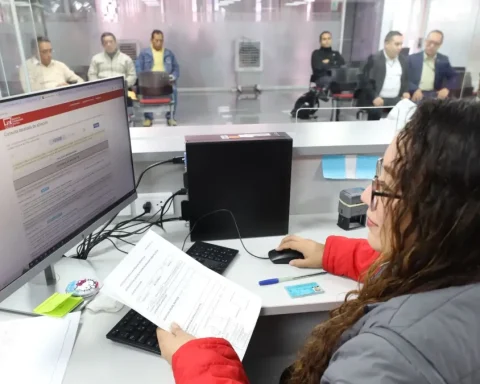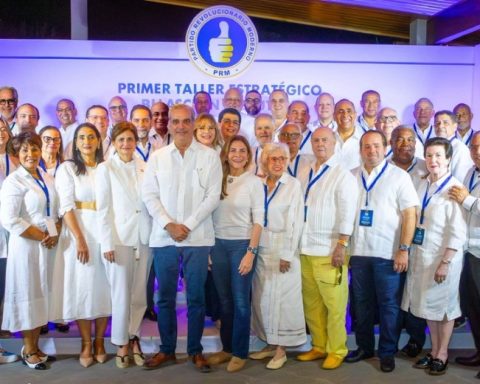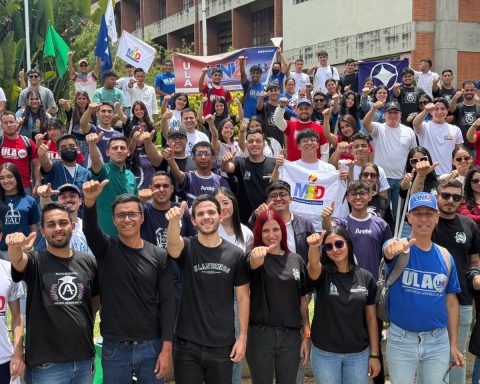It was predictable, after the announcement that Spanish nationality can now be applied for in the cases provided for in the new Democratic Memory Lawthat this Thursday many Cubans attended the Embassy of that country in Havana.
However, the dozens of people gathered very early in front of the Spanish Consulate, on Zulueta street, corner of Cárcel, in Old Havana, had to leave empty-handed.
“The new law is still not being attended to here,” lamented a woman who had waited for the doors of the diplomatic headquarters to open. “They still haven’t published what the shift system is like or how the process is going to be organized.”
“They still haven’t published what the shift system is like or how the process is going to be organized”
Another man, in the same circumstance, intervened: “When the order is given, they will receive in the offices of the Lonja del Comercio”, the other consular headquarters that is located in the historic center in the well-known building crowned with a sculpture of the “fast “god Mercury.
One thing was striking: people asked those who were waiting to try to find out, because the custodian of the place, the only person who spoke to the queue, only referred to the web address where the requirements are collected.
Shortly after noon, the Consulate confirmed, via social networks, that they are not yet receiving applications for the new “grandchildren’s law.” “It is not possible to serve or inform the public without an appointment. All information on requirements and documentation is on our website [ver enlace en hilo] We are finalizing a prior appointment system for applications,” they tweeted. from the official account.
Right there, the diplomatic office illustrated with a simple graphic who can opt for nationalization according to the new norm, that is: those born outside of Spain whose parents or grandparents went into exile for political, ideological, belief or sexual orientation reasons; the children of women who had lost their Spanish nationality for marrying a foreigner before 1978, and the children of those nationalized either with this rule or with the previous one (the Historical Memory Law of 2007).
‼️ It is not possible to attend or inform the public without an appointment.
i ️ All the information about requirements and documentation is on our website [ver enlace en hilo?]
? We are finalizing a prior appointment system for requests. pic.twitter.com/3UkOdYOuge
– ConsEspLaHabana (@ConsEspLaHabana) October 27, 2022
The reality is that the conditions for obtaining nationality this way, in practice, are not so simple, especially in the first case, in which the exiled status of the father or grandfather who left Spain must be proven.
All those who did so between July 18, 1936 (the start date of the Civil War) and December 31, 1955 are considered exiled and it is only necessary to prove their departure through a border point. On the other hand, for those who left between January 1, 1956 and December 28, 1978, they will have to prove it with:
a) Documentation that proves having been a beneficiary of one of the pensions granted by the Spanish Administration to exiles.
b) Documentation from the International Office for Refugees of the United Nations and the Refugee Offices of the host States that assisted the Spanish refugees and their families.
c) Certifications or reports issued by political parties or other entities recognized by the Spanish authorities or the host State of the exiles, which are related to exile.
In any case, if the documentation provided is that of sections b and c, it is essential that it be accompanied by the passport or travel document with an entry stamp in the host country; or the certification of the registration of the Spanish Consulate; o Certifications from the Consular Civil Registry that prove residence in the host country (for example, marriage, birth of children or death registrations), or certification from the local Civil Registry of the host country that proves having acquired the nationality of that country; or documentation of the time of the host country stating the year of arrival by any means of transport.
For the children of women who lost their nationality upon marriage, the literal birth certificate of the mother must be provided, as well as the certificate of marriage to a foreigner prior to December 29, 1978 and, in the event that the wedding was after 1954 , the document proving the mother’s acquisition of her husband’s nationality.
In the latter case, the adult children of those who acquired nationality with the previous grandchildren law and who were excluded precisely because they were over 18 years of age, only the literal Spanish birth certificate of the recognized father or mother must be provided. from the 2007 standard.
How many Cubans actually fit into some of these options remains to be seen in the coming months.
________________________
Collaborate with our work:
The team of 14ymedio is committed to doing serious journalism that reflects the reality of deep Cuba. Thank you for joining us on this long road. We invite you to continue supporting us, but this time becoming a member of our newspaper. Together we can continue transforming journalism in Cuba.
